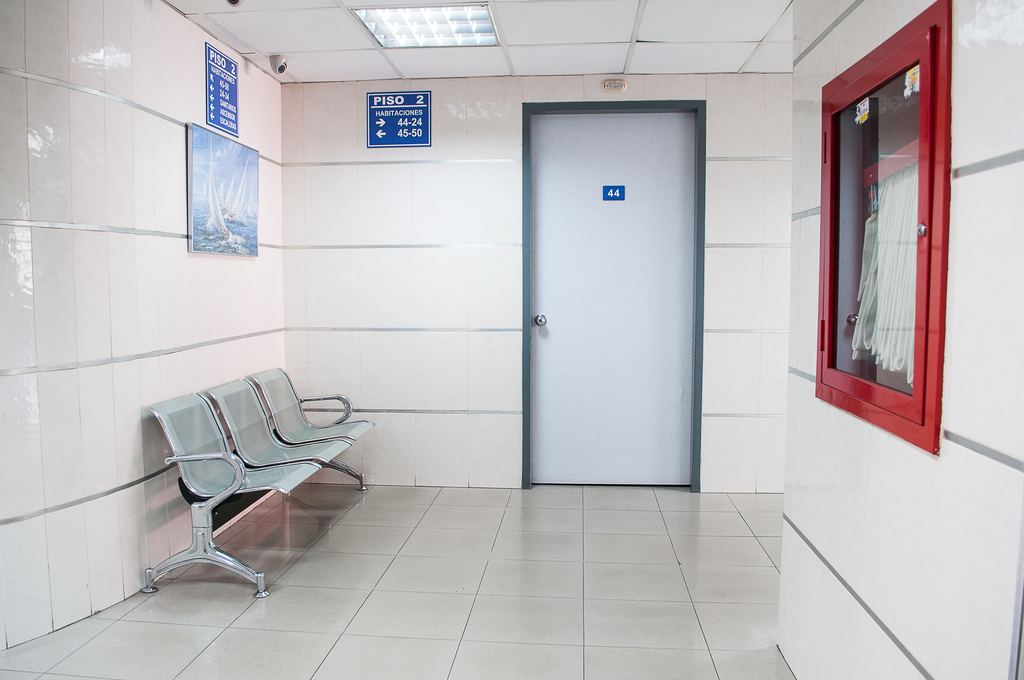US Drug Test Centers Blog
Why DOT Physicals and DOT Drug Tests Are Required by the FMCSA and How They Keep America’s Roads Safe
At US Drug Test Centers, we are proud to serve the men and women who keep America moving. Every day, commercial drivers transport goods, materials, and passengers across the country, forming the backbone of our economy. But with that responsibility comes a tremendous obligation to keep our roads safe. That is why the Federal Motor Carrier Safety Administration (FMCSA) requires DOT physicals and DOT drug and alcohol testing for safety-sensitive transportation employees.
These regulations are not just bureaucratic requirements. They are essential safety measures designed to protect drivers, passengers, and the public. In this article, we’ll explain what DOT physicals and DOT drug tests are, why the FMCSA mandates them, and how compliance ensures the safety and integrity of our nation’s transportation system.
The Mission of the FMCSA
The FMCSA was established to prevent commercial motor vehicle–related crashes, injuries, and fatalities. Its mission is clear: reduce accidents and save lives through oversight, regulation, and enforcement of safety standards for commercial drivers and carriers.
One of the FMCSA’s most important functions is ensuring that every commercial driver is medically qualified and free from the influence of drugs and alcohol. The agency knows that even a single impaired or medically unfit driver behind the wheel of an 80,000-pound vehicle can have catastrophic consequences.
That’s where DOT physicals and DOT drug tests come in. These two programs work together to verify that every driver operating a commercial motor vehicle (CMV) meets the highest standards of health, fitness, and responsibility.
What Is a DOT Physical?
A DOT physical is a medical examination required by the Department of Transportation for all commercial drivers operating vehicles that fall under FMCSA regulations. This exam must be performed by a licensed medical examiner listed on the FMCSA National Registry.
The DOT physical is designed to determine whether a driver is physically and mentally fit to perform their job safely. Drivers must meet specific health requirements to receive a Medical Examiner’s Certificate (MEC), sometimes called a DOT medical card.
Key Areas Assessed in a DOT Physical
The medical examiner evaluates multiple areas of health and function:
- Vision: Drivers must have at least 20/40 vision in each eye with or without correction and be able to distinguish basic colors used in traffic signals.
- Hearing: Drivers must be able to perceive a forced whisper at a distance of five feet or less, with or without hearing aids.
- Blood pressure and pulse rate: High blood pressure can lead to cardiovascular risk. The examiner ensures the driver’s blood pressure is within safe limits.
- Urinalysis: Checks for underlying medical conditions such as diabetes or kidney issues.
- Neurological and musculoskeletal health: Ensures drivers can react quickly, maintain control of their vehicles, and operate safely for long periods.
- Cardiovascular and respiratory health: Detects any conditions that could impair alertness or endurance behind the wheel.
- Mental health and substance use: The examiner also screens for any signs of psychiatric conditions or substance abuse.
Once a driver passes the physical, they are issued a DOT medical card valid for up to 24 months. In some cases, the examiner may issue a certificate for a shorter period if follow-up medical monitoring is required.
Why DOT Physicals Matter
A commercial vehicle operator’s health directly impacts road safety. A sudden medical emergency such as a heart attack, seizure, or loss of consciousness while driving could endanger countless lives. DOT physicals help identify potential health problems before they cause accidents.
These exams also encourage drivers to maintain better overall wellness. When drivers know their continued employment depends on passing medical standards, they are more likely to monitor their health, manage chronic conditions, and make lifestyle improvements.
For employers, ensuring that every driver on staff has a valid and current DOT medical card is not only a legal requirement but also a critical component of their overall safety program.
What Is a DOT Drug Test?
The DOT drug test is another cornerstone of FMCSA’s safety regulations. It ensures that commercial drivers are free from illegal drugs and not misusing prescription medications that could impair their ability to drive safely.
Under federal law, all safety-sensitive transportation employees, including commercial drivers regulated by the FMCSA must undergo drug and alcohol testing at specific times, including:
- Pre-employment: Before a driver is hired or allowed to operate a CMV.
- Random testing: Carried out throughout the year on a random selection of drivers.
- Post-accident: Conducted after certain accidents as defined by FMCSA criteria.
- Reasonable suspicion: When a supervisor observes signs of drug or alcohol use.
- Return-to-duty: After a violation or positive test result, once rehabilitation requirements have been met.
- Follow-up: Conducted periodically after a driver has returned to work following a violation.
The standard DOT drug test panel screens for five categories of substances:
- Marijuana (THC)
- Cocaine
- Amphetamines (including methamphetamine and MDMA)
- Opiates (including codeine, morphine, heroin, hydrocodone, hydromorphone, oxycodone, and oxymorphone)
- Phencyclidine (PCP)
In addition, DOT alcohol testing is performed using an evidential breath testing (EBT) devices to detect alcohol impairment.
The Importance of Drug Testing in Transportation Safety
The dangers of drug or alcohol impairment while operating a commercial vehicle cannot be overstated. Even minor impairment can lead to delayed reaction times, poor decision-making, and loss of coordination.
1. Protecting Public Safety
Commercial drivers share the road with families, commuters, and pedestrians. A driver under the influence endangers everyone around them. Drug and alcohol testing is a direct way to prevent impaired drivers from getting behind the wheel and putting others at risk.
2. Reducing Accidents and Fatalities
Studies consistently show that drug and alcohol use increases the likelihood of accidents. The FMCSA’s testing program helps identify and remove impaired drivers from the road before a tragedy occurs. Every positive test prevented or addressed is a potential life saved.
3. Promoting Accountability and Professionalism
Mandatory testing reinforces the professional standards expected of commercial drivers. It sends a clear message that the industry values safety, integrity, and responsibility. When employers implement consistent testing, it fosters a culture of trust and accountability among their workforce.
4. Protecting Employers from Liability
Employers who fail to maintain a compliant drug testing program risk significant penalties, lawsuits, and damage to their reputation. If an impaired driver causes an accident, the employer could face severe legal and financial consequences. Conducting proper DOT drug and alcohol testing is not only a legal requirement but also a vital risk management strategy.
The Role of US Drug Test Centers in DOT Compliance
At US Drug Test Centers, we help employers and drivers remain compliant with FMCSA and DOT regulations. We understand that transportation companies must maintain a consistent and reliable testing program to meet all federal requirements.
Our Services Include:
- Nationwide testing network: With thousands of collection sites across the country, drivers can easily schedule tests wherever they are.
- FMCSA and DOT compliance programs: We provide complete support to ensure employers meet every regulatory requirement, including random pool management and reporting.
- Certified laboratories and medical review officers (MROs): All results are verified by certified professionals to ensure accuracy and compliance.
- Fast and efficient turnaround: We know drivers need quick results to stay on the road, so we prioritize fast and reliable processing.
- Customized testing programs: Whether you are an owner-operator or manage a large fleet, we can tailor a program that fits your needs.
Our mission aligns with the FMCSA’s to keep America’s roads safe by ensuring every commercial driver meets the highest standards of health and fitness.
How DOT Physicals and Drug Testing Work Together
While DOT physicals and DOT drug tests are separate processes, they complement each other to provide a comprehensive safety net.
- DOT physicals verify that a driver is medically fit to operate a vehicle safely.
- DOT drug tests confirm that the driver is free from the influence of drugs and alcohol.
Together, they provide a holistic view of a driver’s ability to perform safely. A driver who passes both exams demonstrates physical capability, mental stability, and a commitment to a drug-free lifestyle, all essential traits for those who share the road with the public.
This dual approach minimizes risk, builds public confidence in the transportation industry, and ensures that commercial drivers represent the professionalism and reliability their job demands.
Common Misconceptions About DOT Testing
Even though DOT testing and physicals have been part of the industry for decades, misconceptions still exist.
“It’s just red tape.”
Some believe that these regulations are bureaucratic hurdles. In reality, they are life-saving standards. They prevent unfit or impaired drivers from endangering lives on the highway.
“It’s too expensive.”
While testing programs require investment, the cost of non-compliance is far higher. Fines, lawsuits, and accident-related losses can devastate a business. Proper testing is an investment in safety and long-term sustainability.
“It’s only for large carriers.”
DOT regulations apply to any driver or employer operating under FMCSA authority, regardless of company size. Owner-operators and small fleets are equally responsible for compliance.
The Bigger Picture: A Culture of Safety
Safety in transportation doesn’t happen by accident. It is the result of consistent oversight, training, and adherence to standards. DOT physicals and drug tests form the foundation of a broader culture of safety and accountability.
When companies commit to compliance, they send a powerful message that every life on the road matters. Drivers who know their employers value safety are more likely to take pride in their work, follow regulations, and maintain professionalism.
This culture of responsibility extends beyond individual drivers. It strengthens public trust in the commercial transportation industry as a whole. Each compliant driver contributes to a safer road network for everyone.
Safety Starts with Compliance
At US Drug Test Centers, we believe that compliance with DOT and FMCSA requirements is more than just following the law; it is about protecting lives. Every DOT physical and every DOT drug test helps ensure that the individuals operating our nation’s largest and most powerful vehicles are healthy, alert, and drug-free.
The FMCSA’s regulations serve a simple but powerful purpose: to keep America’s roads safe. By maintaining high medical and behavioral standards, we can reduce accidents, save lives, and preserve the integrity of the transportation industry.
Whether you are a fleet owner, safety manager, or independent driver, your commitment to compliance reflects your commitment to safety. US Drug Test Centers is proud to be your partner in achieving that mission. Together, we can ensure that every mile traveled across this country is as safe as possible.























